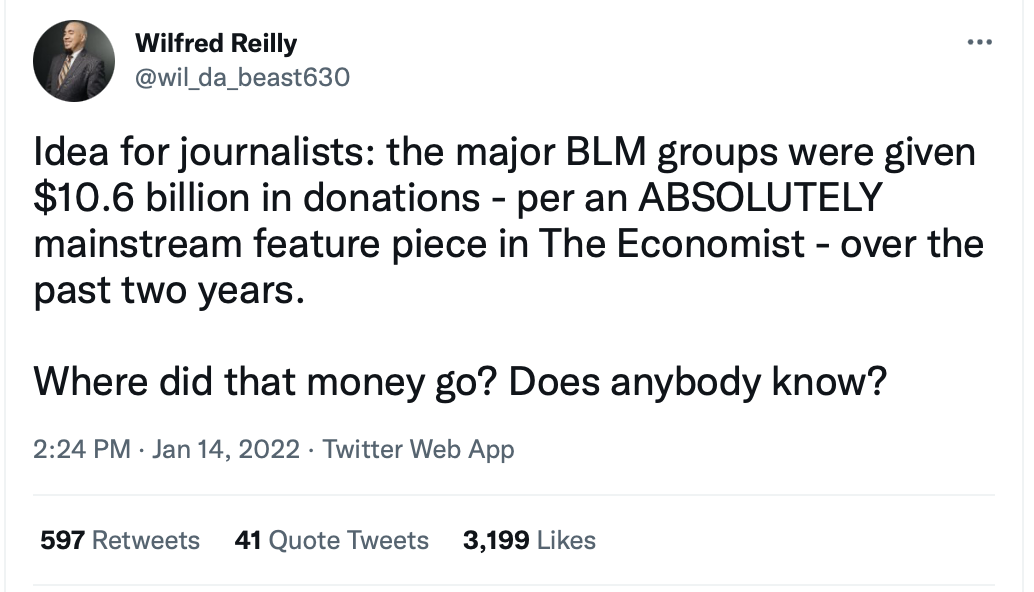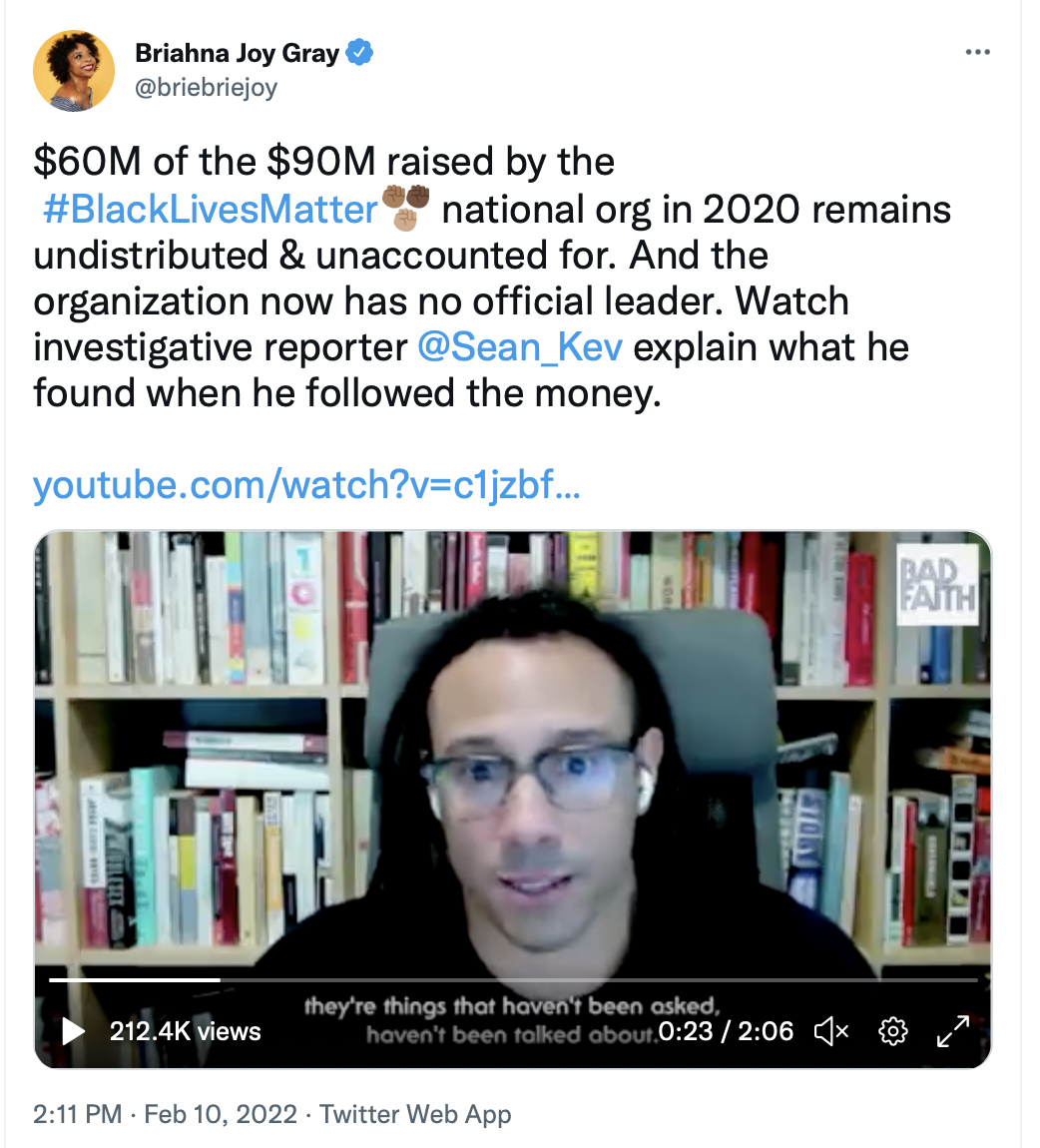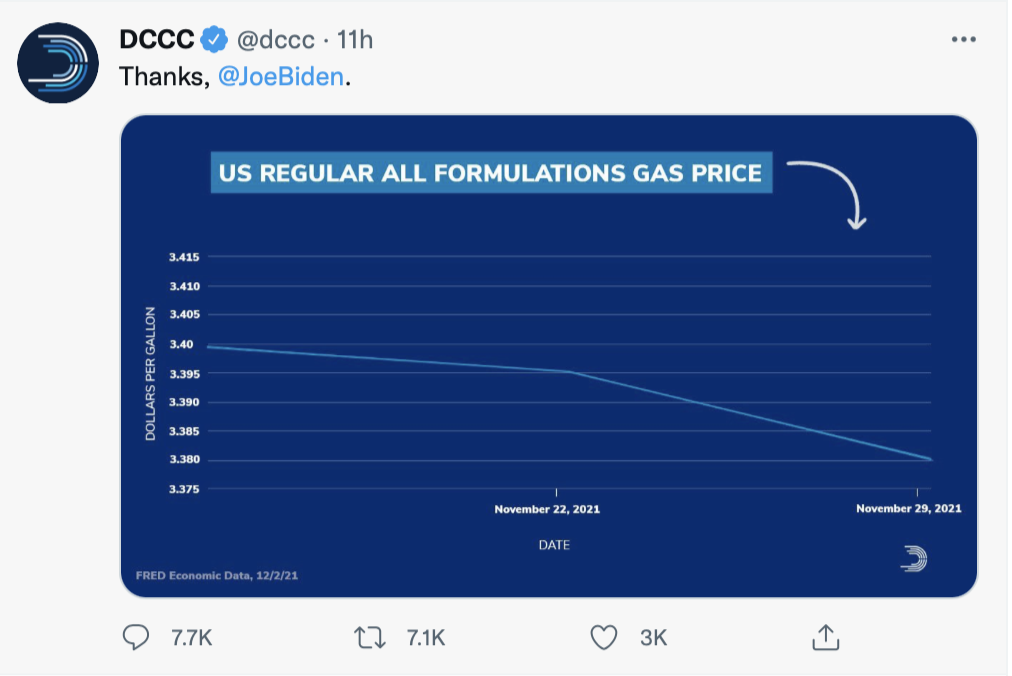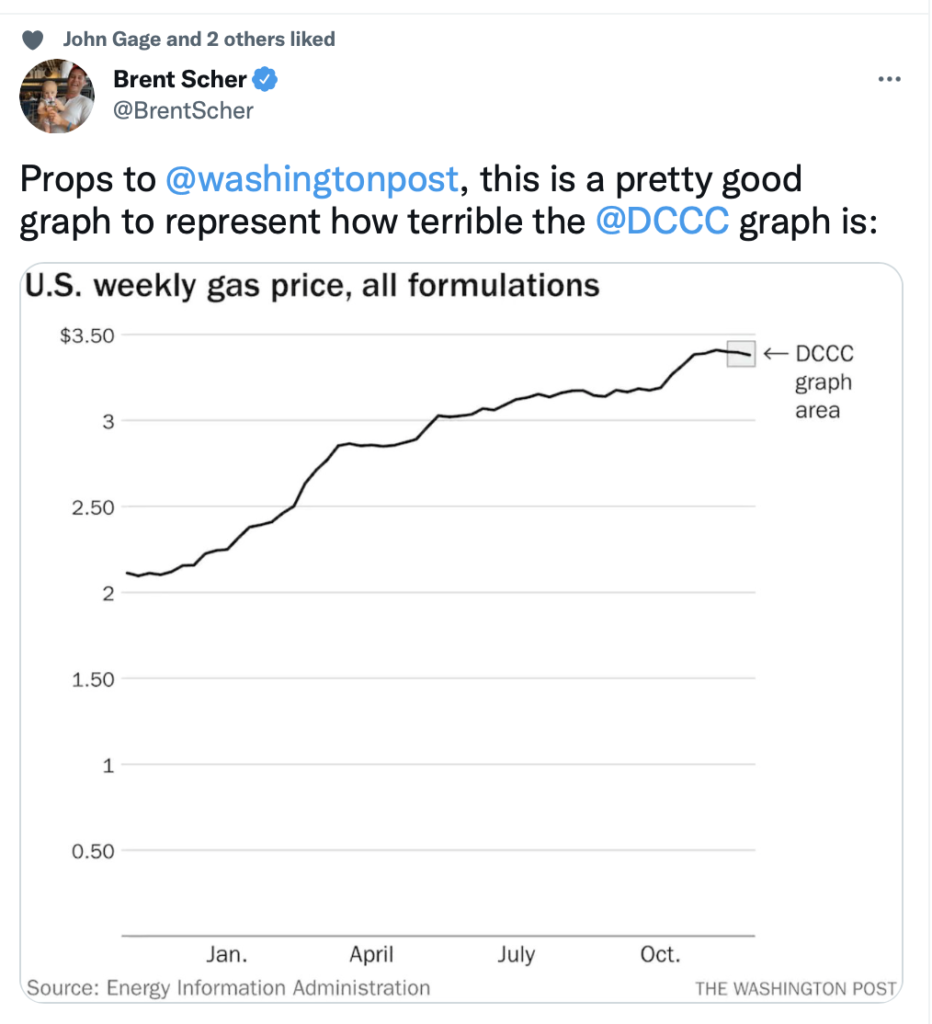Douglas Murray: Black Lives Matter Started with a Good Cause, Then Turned it Into a Racket
Douglas Murray, writing in the New York Post:, is concerned about the factually defective positions taken by Black Lives Matter as well as its highly questionable financials:
Like the most fraudulent pastors, the heads of BLM take advantage of good people. They present an undeniably good cause. They prey on people’s hopes and fears. After all, who in America does not believe that black lives matter? Who wouldn’t have sympathy with, or support, a group that claims to want to help people fight injustice? But BLM operates like all rackets do.
Firstly, they lie about reality. In the case of BLM, they pretend that black people in the United States in 2022 can be killed at any time by the police. They pretend that racism is a pandemic in this country and that everything and anything must be done to tackle it.
The effects of this work is there for all to see. The American public has been misled about the real state of race in this country. A poll in 2020 asked Americans how many unarmed black men they think are killed by the police in America the previous year. More than a fifth of people who described themselves as “very liberal” said they thought it was over 10,000 unarmed black people in America killed by police every year. Among self-described “liberals,” around 40% said they thought that the figure was somewhere between 1,000 and 10,000. The actual figure was around 10. Meaning that liberals in America were off by several orders of magnitude. They had a completely wrongheaded idea of what America is actually like.
But no wonder. For they had spent years hearing BLM pretend that black people are killed with impunity in this country.
Murray then turns to BLM's financial misdeeds, including recent revelations that BLM purchased a "purchase of a swanky new $5.8 million mansion in Southern California."
Other commentators have been highly critical of BLM, including Wilfried Riley:
Briahna Joy Gray's podcast featured Sean Campbell, who has taken flack for looking into BLM improprieties.
Here is a longer version of this same video:
Freddie DeBoer has written on the topic. His article is "White Journalists Are Terrified of Appearing to Criticize BlackLivesMatter, Obviously"
That pouring billions of dollars into an amorphous social movement could result in mismanagement and corruption is as obvious a thing as I can imagine, and so the need for a watchdog press that helps ensure that money isn’t misspent is also quite obvious. I would analogize the current moment and BLM to the Red Cross after 9/11, when a great deal of scrutiny was justly applied to that organization and its practices. But the media has spent the past year and a half saying almost nothing about BLM and where the money has gone, ceding the ground to conservative publications. It was the right-leaning New York Post that reported that one of the cofounders of the BLM Global Network Foundation had purchased four houses in a short time span, for example. The trouble is that many left-leaning people feel that they can safely disregard anything published in conservative media, and thus a badly-needed conversation hasn't happened. Anyone who has ever been part of a large protest movement understands how desperately such movements need external review for accountability, but if only Breitbart et al. are engaged in critical inquiry, the liberal donor class is not going to be moved.
Susan Woods sounded alarms about BLM's operation back in 2020:




